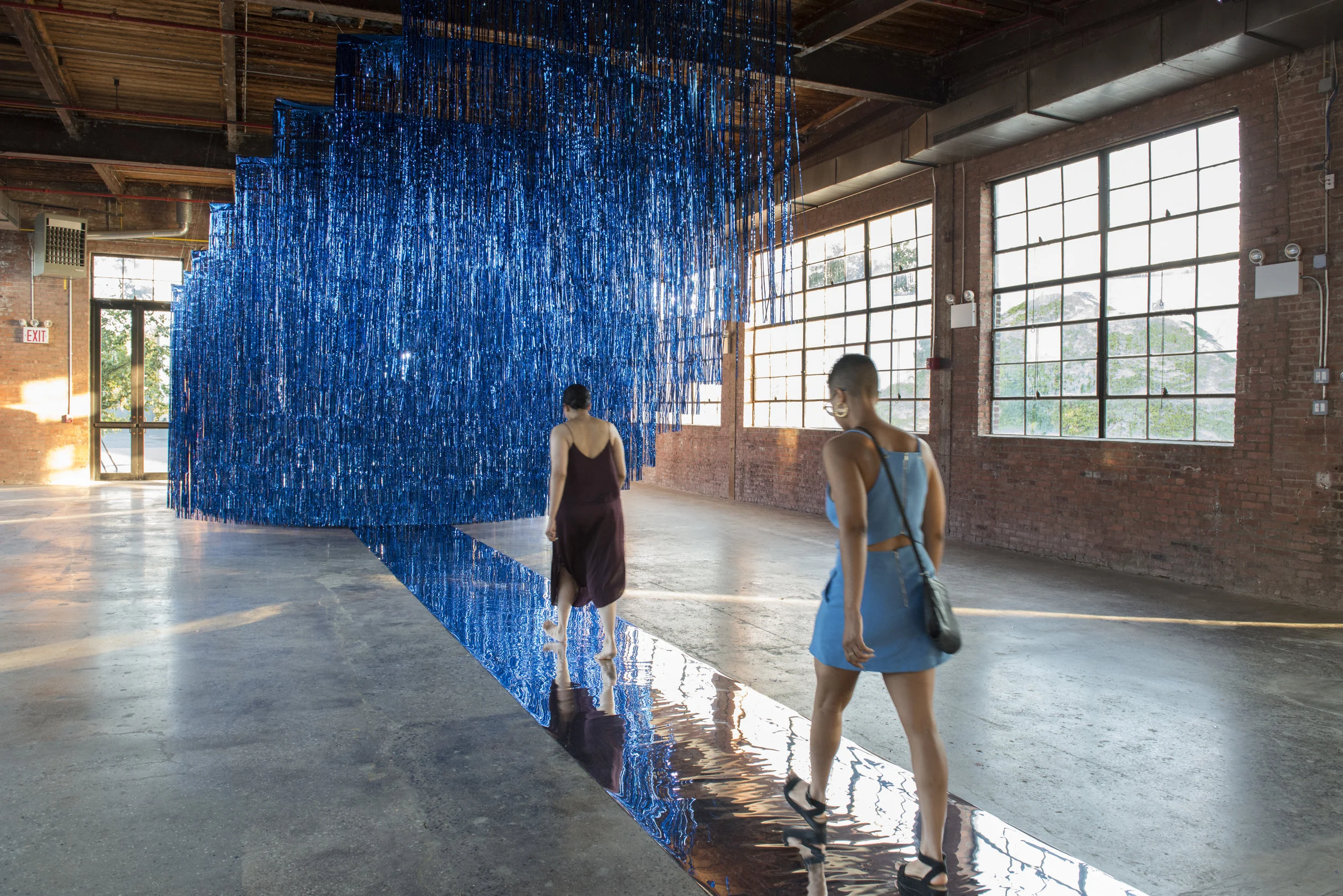Mickalene Thomas' Photography: The Epitome of Black Girl Magic
Mickalene Thomas, Le leçon d’amour, 2008 © Mickalene Thomas. Courtesy the artist; Lehmann Maupin, New York and Hong Kong; and Artists Rights Society (ARS), New York
Superstar artist Mickalene Thomas departs from her signature, rhinestone-studded, mixed-media paintings and focuses primarily on photography, collage, and installation in her latest exhibit ‘Muse: Mickalene Thomas Photographs’, currently on view at the Aperture Foundation. The exhibit, comprised of work from the last fifteen years or so, includes large portraits, small collages, and a self-curated mini exhibit titled ‘Tête-a-Tête’. What makes Thomas’ art so singular and influential is her outright celebration of black femininity. Whereas society and mass media have had a long tradition of fetishizing, denigrating, and marginalizing black female bodies, Thomas refutes those notions and exalts the black female form. Her subjects are depicted as proud and triumphant, perfectly confident and utterly seductive, and poised for victory.
Mickalene Thomas, Negress with Green Nails, 2005 © Mickalene Thomas. Courtesy the artist; Lehmann Maupin, New York and Hong Kong; and Artists Rights Society (ARS), New York
Thomas’ muses come in many forms: firstly in her mother, the dearly departed Sandra Bush, as well as friends and old lovers. Early self-portraits from her time at Yale make a significant appearance. In ‘Negress with Green Nails’, a younger Thomas playfully stares into the camera, wearing a chartreuse scoop-neck top and decked out in gold bijouterie, replete with garish nails and makeup. In another photograph, ‘Quanikah Goes Up’, (Quanikah being her alter ego), Thomas poses assuredly in a skimpy halter top, blonde wig, and a provocative red lip. Thomas has reflected on being inspired by the hip-hop heroines of the 2000s: Lil' Kim, Foxy Brown, Mary J. Blige, and Eve. It’s a nod to an era of excess, the blinge-drenched world of Hype Williams, when these rap vixens reigned supreme. Her collage work is equally as compelling, in ‘Racquel Leaned Back’, a svelte model in a posh, violet outfit is perched upon kitschy, feline-patterned furnishings, bearing a regal, sensual stance.
Mickalene Thomas, Quanikah Goes Up, 2001/2005 © Mickalene Thomas. Courtesy the artist; Lehmann Maupin, New York and Hong Kong; and Artists Rights Society (ARS), New York
The installation serves as the major anchor of the show, a nostalgic, domestic setting filled with auto-biographical tidbits of her life. The re-imagined space represents a communal area where uncles, aunts, family friends would congregate, and illustrates a part of her northeastern African-American childhood. A portrait of her mother hangs as the centerpiece amidst the wood paneling, funky furnishings and gaudy decorative objects. The installation is an ode to Sandra Bush, which memorializes her mother through and through, as Thomas’ 2012 documentary, ‘Happy Birthday to a Beautiful Woman’, plays quietly on the vintage television set.
Racquel Leaned Back, 2013 © Mickalene Thomas. Courtesy the artist; Lehmann Maupin, New York and Hong Kong; and Artists Rights Society (ARS), New York
Thomas curates a secondary exhibit within the show titled ‘Tête-a-Tête’, filled with work from friends, peers, and mentors. On view are visually arresting images from legends such as Malick Sidibé, Carrie Mae Weems, and Lyle Ashton Harris, to some of Thomas’ contemporaries including Hank Willis Thomas, Derrick Adams, and Xaviera Simmons, to rising stars such as Deana Lawson, Latoya Ruby Frazier, and Zanele Muholi. The photographs continue Thomas’ weighty dialogue at the intersection of gender and race in a complex, multi-generational approach.
Muse: Mickalene Thomas Photographs and “Tête-a-Tête” were on view from January 28 - March 17 at the Aperture Foundation.
This article originally appeared in Whitehot Magazine.










